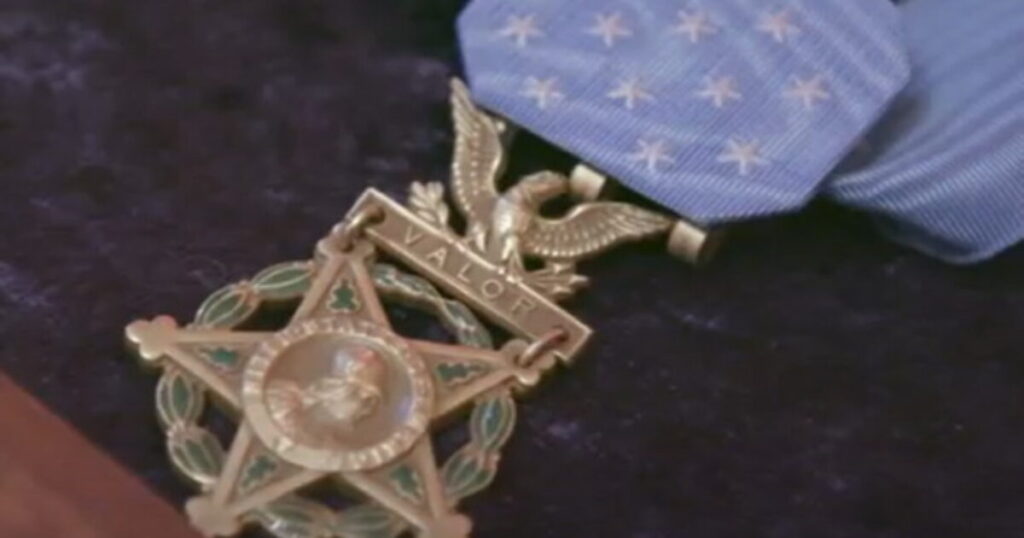In the political landscape leading up to the 2024 presidential election, former President Donald Trump has received a notable endorsement from a group of more than a dozen Medal of Honor recipients. These individuals, who have demonstrated extraordinary valor in wars such as Vietnam, Iraq, and Afghanistan, have publicly pledged their support for Trump, emphasizing their commitment to national security and the preservation of American freedoms. Their endorsement reflects a significant aspect of Trump’s appeal: a perceived ability to connect with military values and service, which resonates with a wide base of patriotic Americans. This endorsement stands in stark contrast to Vice President Kamala Harris’s attempts to highlight her backing from political figures like Liz and Dick Cheney, which some may view as less impactful compared to the recognition of those who have literally put their lives on the line for their country.
The group of Medal of Honor recipients articulated several core beliefs that motivated their endorsement of Trump. They emphasized the privilege of American citizenship and the fundamental strength of a patriotic nation. Their message underscores the importance of military service and the lasting sacrifices made by service members in safeguarding American freedoms. The endorsement also highlights a commitment to the U.S. Constitution and the integrity of national institutions, asserting that restoring faith in these structures is critical for national cohesion. This rallying cry is pivotal as voters assess the candidates’ ability to uphold these values amidst debates surrounding “woke ideology” and its perceived encroachment on military and public life.
In their endorsement, these veterans explicitly called out claims made by Democratic political leaders, criticizing Minnesota Governor Tim Walz for allegedly fabricating aspects of his military service. This accusation not only underscores the importance of authenticity and honor in military service but also positions Trump, who presents himself as a defender of military integrity, in a favorable light. Such public statements from decorated veterans are impactful, as they shine a spotlight on the character and integrity that voters expect from their leaders, thereby enhancing Trump’s candidacy among those who prioritize military honor and values.
Additionally, Trump’s campaign has focused on addressing the “woke ideology” that many see as influencing the U.S. military and broader society. This rhetoric resonates with segments of the population who view political correctness and social justice movements as detrimental to traditional values and military readiness. Trump’s promise to confront these ideologies positions him as a protector of military and nationalistic ideals, appealing to voters who value strength and resilience over progressive reforms. By aligning himself with military heroes, Trump is likely seeking to frame himself as the candidate who will restore respect for American traditions and institutions.
The endorsement of Trump by Medal of Honor recipients has sparked discussions about the weight of endorsements in political campaigns. While the backing of high-profile political figures can attract attention, endorsements from veterans and individuals who have achieved the highest military honors carry profound significance, particularly in conservative circles. This dynamic highlights a yearning among certain voter demographics for leadership that embodies traditional patriotism and a commitment to national principles, especially in an era marked by divisive cultural debates. The contrast of veteran support for Trump against the political affiliations of figures like the Cheneys fuels a narrative surrounding Trump’s alignment with foundational American values and military camaraderie.
As the election cycle progresses, the influence of endorsements from military heroes could play a crucial role in mobilizing support for Trump among voters concerned about national security and military integrity. These endorsements can serve as a rallying point for constituents who prioritize honoring and respecting those who serve in the armed forces. Thus, as voters evaluate candidates based on their ability to honor military service and demonstrate a commitment to America’s foundational values, Trump’s endorsement from Medal of Honor recipients positions him as a formidable contender in the upcoming election. Such backing could potentially bolster his efforts to reclaim the presidency and assert a vision for the nation’s future aligned with traditional patriotic ideals.

